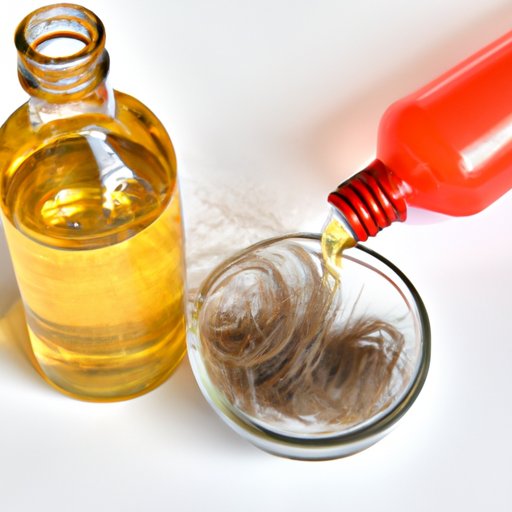
Introduction
Dry scalp is a common condition that affects many people, causing irritation, itching, and flakes on the scalp. While it may seem like a minor issue, dry scalp can be uncomfortable, embarrassing, and even lead to hair loss if not properly addressed. This article will provide natural remedies, medicated shampoos, dietary changes, and tips for caring for your scalp, all designed to help alleviate dryness and improve scalp health.
Natural Remedies
Many people prefer using natural remedies to treat dry scalp, instead of harsh chemicals found in some shampoos or conditioners. One popular option is coconut oil, which is a natural moisturizer that can deeply penetrate the scalp and provide relief. Applying a small amount of coconut oil to your scalp and massaging it in can help reduce dryness and prevent flaking. Another natural remedy is aloe vera, which has been used for centuries for its anti-inflammatory and healing properties. Aloe vera gel can be applied to the scalp to soothe irritation and promote healing. Tea tree oil is another effective natural remedy, thanks to its antibacterial and antifungal properties. Adding a few drops of tea tree oil to your shampoo or conditioner can help reduce itching and flakiness.
Medicated Shampoos
In more stubborn cases of dry scalp, medicated shampoos may be necessary to relieve symptoms. There are several types of medicated shampoos that can help, depending on the cause of your dryness. Some popular ingredients in these shampoos include salicylic acid, coal tar, and ketoconazole. Salicylic acid helps to exfoliate the scalp and clear away dead skin cells, while coal tar can reduce inflammation and itching. Ketoconazole is an antifungal ingredient that can effectively treat dandruff, which is sometimes the cause of dry scalp.
Dietary Changes
Another way to improve scalp health is by making some simple dietary changes. Many nutrients are crucial for healthy skin and hair, and incorporating more of these into your diet can help improve your scalp. For example, omega-3 fatty acids are essential for healthy skin and can be found in foods like salmon, walnuts, and chia seeds. Vitamin E is another important nutrient that can improve scalp health by increasing blood flow and reducing inflammation. Foods high in vitamin E include almonds, avocados, and spinach.
Reducing Irritation
Certain habits and products can irritate the scalp and exacerbate dryness. To reduce irritation, it’s important to avoid using hot water when washing your hair, as this can strip your scalp of natural oils. Alcohol-based styling products can also dry out the scalp, so consider opting for natural products instead. Heat styling tools should be used sparingly, as the high temperatures can damage the hair and scalp.
Caring for the Scalp
Finally, it’s important to care for your scalp as part of your overall hair care routine. This includes washing your hair regularly, but not too frequently (as overwashing can dry out the scalp), and using a gentle shampoo designed for your hair type. Be sure to rinse thoroughly to remove all product buildup. Consider using a scalp massager or brush to stimulate blood flow and exfoliate the scalp. While brushing your hair, avoid pulling too hard, and use a wide-tooth comb to prevent damage.
Conclusion
Dry scalp can be a frustrating and uncomfortable condition, but with the right care and treatment, it can be easily managed. Natural remedies like coconut oil, aloe vera, and tea tree oil can be effective in reducing dryness and flakiness, while medicated shampoos can address more stubborn cases. Simple dietary changes can also help improve scalp health, as can reducing irritation and caring for the scalp as part of your hair care routine. Remember to be patient in treating dry scalp, and always consult with a dermatologist if the condition persists.




